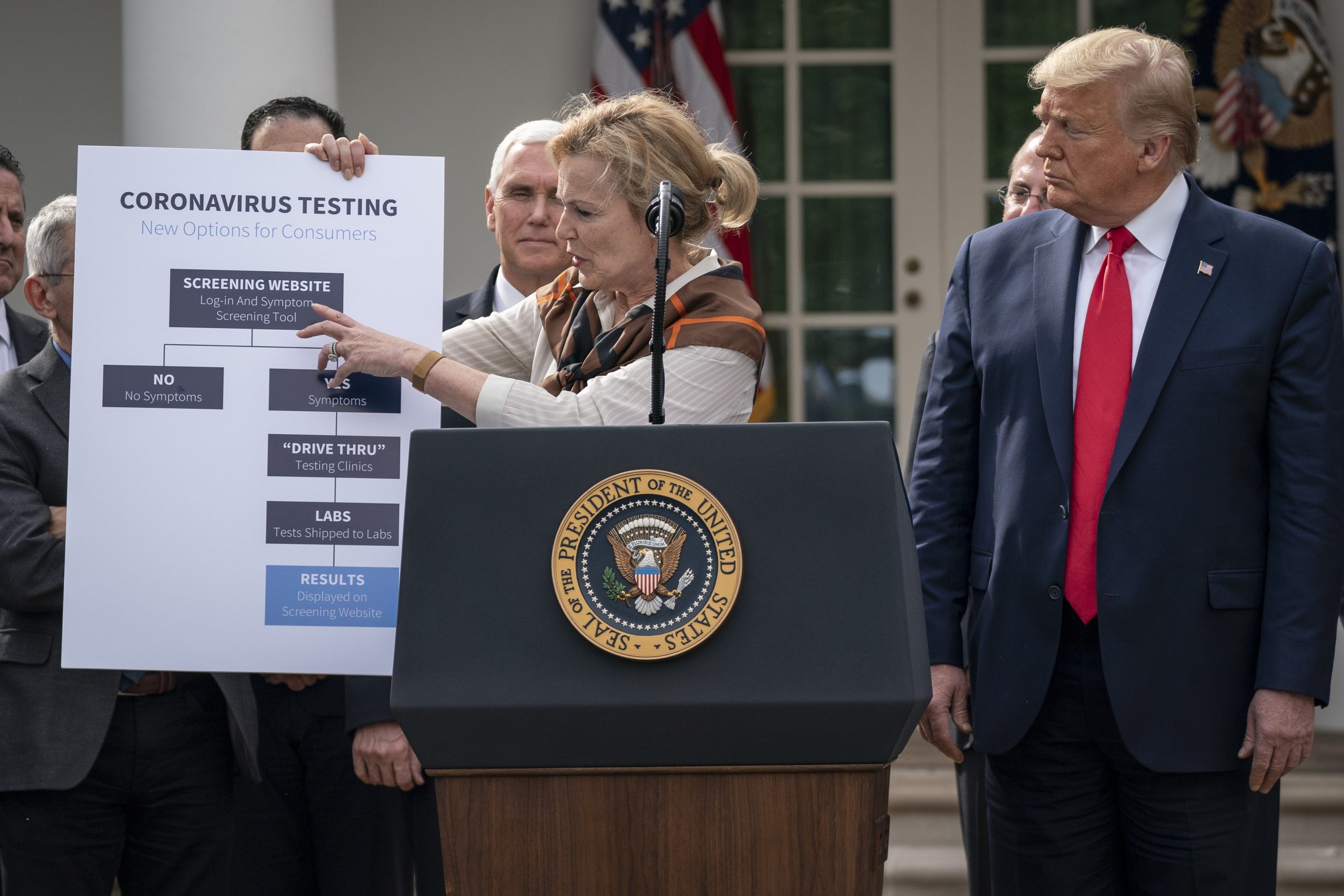Over the weekend, details began to emerge regarding how two Alphabet companies will be contributing to the government's efforts to control the spread of the new coronavirus. The news came after the government's Friday announcement that Google would play a central role in coordinating expanded testing for infections—an announcement that seemed to catch the company off guard.
President Trump and his Coronavirus coordinator, Deborah Birx, both indicated that expanded testing would rely on a web portal provided by Google that would gather symptom and exposure information, and recommend testing if appropriate. If so, the software would direct people to a nearby drive-through testing facility with adequate capacity. But within a few hours, the company issued a statement indicating that it was a different company within Google's parent Alphabet that would be providing a portal. That company, Verily, indicated the portal was in early stages, and was planning on testing it in a single area at some point in the future.
According to reporting on the confusion, Google had only asked for volunteers to help with coronavirus issues on Thursday, the day before the White House announcement. There are no indications it had specific plans for the volunteers at that time. Verily, meanwhile, had begun work on a coronavirus project, but it was planned only for California's Bay Area, and was not even ready for testing—in part because so little virus testing infrastructure exists.
Apparently, these facts became confused and inflated by senior members of the Trump administration, and the inflated version generated enough enthusiasm that it played a central role in Friday's announcement.
Since then, both companies have changed their plans and made new announcements. In a blog post from Verily, it announced a web portal for California residents would go live on Monday, and seemingly does match the description of an electronic triage that will determine who should get tested and coordinate their testing. The company, however, says that some of its features may not be ready by tomorrow: "The program is in its early stages, and we will take the time to assess operations at pilot sites in the Bay Area before rolling out to additional sites. "


 Loading comments...
Loading comments...
